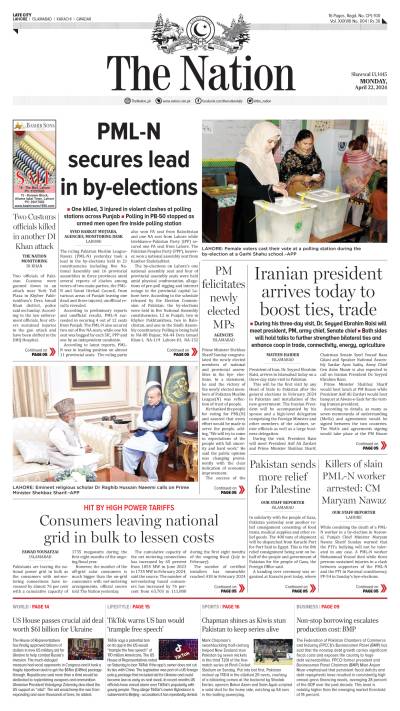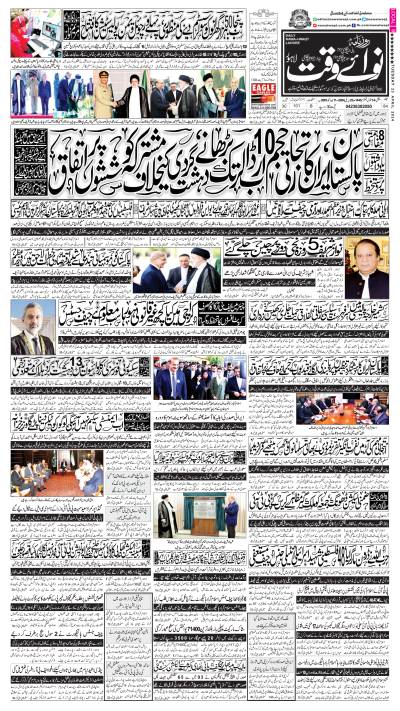ISLAMABAD - The United States has praised Pakistan for engaging in talks with Afghanistan amid the tension between the Muslim-majority nations, foreign ministry officials said.
A senior official at the foreign ministry told The Nation that Washington was positive about Foreign Secretary Tehmina Janjua and her delegation’s visit to Kabul.
“They supported the dialogue process and appreciated Pakistan’s efforts for peace,” the official said citing diplomatic contacts with Washington.
He said Washington urged Pakistan to continue the dialogue process with Afghanistan to address misunderstandings, which lead to skirmishes along the border.
Pakistan-Afghanistan ties have been tense in the recent months as both the countries blamed each other of sheltering militants.
Pakistan has denied the allegations but provided proofs about the hideouts of the militants on the Afghan side of the border.
Kabul rejects the evidence.
There have also been some skirmishes on the border. Last Tuesday, Foreign Secretary Tehmina Janjua met Afghan President Ashraf Ghani in Kabul to discuss bilateral relations and the geostrategic situation in the region. The two sides also held delegation-level talks.
A foreign ministry statement after the meetings said: “The two sides discussed ways and means to enhance the level of mutual trust.”
Reports from, Kabul however, said President Ghani had raised security concerns during his meeting with Janjua. Afghan media reported that Ghani raised the issue of “cross-border shelling and asked the visiting official to share his concerns with her country’s new leadership”.
Yesterday, a foreign ministry statement said, Foreign Secretary Tehmina Janjua visited Kabul for bilateral political consultations with her Afghan counterpart Deputy Foreign Minister Hekmat Khalil Karzai on 15.
“The two agreed that lasting peace and stability in Afghanistan was critical for regional stability. The foreign secretary emphasised that there was no military solution to the Afghan conflict and the focus should be on evolving a credible political settlement,” the statement said.
It added: “The two sides agreed that terrorism was a common challenge and there was a need to strengthen institutional cooperation between the two countries to effectively combat this menace. The foreign secretary underlined the need of strengthening border management and early humane repatriation of Afghan refugees.”
The statement said: “Emphasising the importance of regional connectivity, foreign secretary reiterated Pakistan’s desire to expedite transit facilitation and infrastructure connectivity projects between the two countries.”
During the visit, the foreign ministry said, Janjua also called on Afghan President Ashraf Ghani, National Security Adviser Haneef Atmar, National Directorate of Security chief Masoom Stanikzai, former president Hamid Karzai and Hizb-e-Wahdat leader Ustaad Muhammad Mohaqiq.
Another official at the foreign ministry said, while Pakistan was pleased on US appreciation, it had conveyed reservations regarding the use of Afghan soil against Pakistan.
“Afghanistan accuses us of creating unrest along the border, which is unfair. We are committed to the dialogue process but both the sides also need to be fair and serious. We are hopeful to settle the tension with Afghanistan through talks,” he added.
This week, Lieutenant General Michael Garrett, commanding general of the United States Army Central Command, led a six-member delegation on a three-day visit to Pakistan. This was General Garrett’s first visit to Pakistan.
A US embassy statement on Wednesday said Garrett and the delegation met with the Pakistan Army’s chief of general staff, the director general of Military Training, and the director general of Military Operations at the Army General Headquarters during their just concluded visit.
General Garrett also met with the director general of Joint Staff and director general of Joint Warfare and Training to discuss operations, training, and other areas of military cooperation between the United States and Pakistan. He visited the National Counter-Terrorism Training Centre in Pabbi, Punjab province.
While at the training centre, the centre’s director briefed the delegation on Pakistani efforts to train soldiers to fight terrorist groups.
“It was my distinct honour to visit Pakistan,” said General Garrett.
“This visit is significant in continuing to build the relationship between our two militaries and countries, one of our key partnerships in the region.”
“US Army Central Command engages with Pakistan’s military leadership and organizations primarily through military-to-military information exchanges, regional symposia, and multilateral and bilateral exercises. These events allow both countries to build relationships necessary to advance counterterrorism efforts in the region,” said the US embassy statement.
Trump at Camp David for Afghan talks
AFP adds: US President Donald Trump will meet Friday with his national security team at Camp David, as he mulls whether or not to send more American troops to war-ravaged Afghanistan.
The administration is split over what stance to adopt on the longest-running war in US history.
Possible plans include sending thousands more troops into the nearly 16-year conflict, or taking the opposite tack and pulling out, leaving private military contractors to help the Afghans oversee the fragile security situation.
"The president along with the vice president will meet with the national security team on Friday at Camp David to discuss the South Asia strategy," the White House said.
Trump's generals have called the Afghan conflict a "stalemate" and even after years of intensive help from the US and other NATO nations, Afghanistan's security forces are still struggling to hold back an emboldened Taliban.
In an early move to address the situation, Trump gave his Pentagon chief, former general Jim Mattis, broad powers to set troop numbers.
But several months later, the level remains stuck at about 8,400 US and about 5,000 NATO troops, mainly serving in a training and advisory capacity.
Mattis wants to wait until the White House has come up with a coherent strategy for not just Afghanistan but the broader region, notably Pakistan and how it deals with terror groups, before he commits to adjustments. But reports have suggested that other Trump advisers, including his influential strategy chief Steve Bannon, favor cutting American losses by pulling out or sending private military contractors to replace troops.





